Teaching is not only a job but also a craft to master. The University of Toronto Teaching Fellowship (UTTF) provides teaching stream faculty with an opportunity to be learners. Admitted fellows undertake a two-year pedagogical project to further their interest in teaching and explore innovative approaches to implement in their classrooms.
“It is relatively rare in our teaching that we have that opportunity to step back for a minute and really take a deep dive in what we are doing in the class or a set of courses,” says Susan McCahan, Vice-Provost, Innovations in Undergraduate Education (VPIUE), whose office oversees the program. The Teaching Fellowship provides this space and opportunity. “We can reimagine our course(es) in one way or another and bring something new to our teaching. It’s an opportunity to deeply explore an idea or area.”
Kathy Liddle, Assistant Professor, Teaching Stream in Sociology (UTSC), wanted to explore strategies for creating a sense of community in large enrollment classrooms. Being involved in pedagogical projects continuously since her time in graduate school, she notes, “The combination of benefits offered by the UTTF – time, mentorship, and funding – combined to allow me to further my work on teaching. Course releases leave more space in my schedule to do the thinking, planning, and evaluation that are necessary.”
Now in the midst of her second year as a teaching fellow, she has already implemented some strategies from her research into the classroom. “A theme that I saw reiterated in the literature was the idea of giving students a chance to share personal stories so that they can more easily make connections with each other.” She found an opportunity to apply this when teaching a class about socialization, “I did an activity where they [students] broke into groups and discussed specific examples from their personal lives. When we came back together and began sharing, you could see people who had similar experiences visibly connecting with each other verbally or with non-verbal communication,” says Liddle.
The Teaching Fellowship provides fellows with time in the form of two half course releases and funding to support their projects, which consists of $10,000 for research and $5,000 for professional development. Fellows also benefit from the mentorship from the Centre for Teaching Support & Innovation (CTSI). Regular meetings with the Centre’s staff members enable fellows to evaluate the progress of their projects but also to share insights and feedback with each other and the broader U of T community. The interdisciplinary nature of the cohort makes such collaborations even more invaluable.
“CTSI has connections beyond its walls, to other offices and groups. So, if one of those fellows cannot find what they need within CTSI, there is this connection outward. They know a lot of people who know a lot about teaching,” notes McCahan.
The U of T Fellowship began in 2015 as a one-year term. Chester Scoville, Assistant Professor, Teaching Stream in English (UTM) was in the first cohort. While he found the term was too short to conduct research and implement changes, he did appreciate having the time to focus on his project. Also, working with CTSI meant he encountered new areas of research through the Scholarship of Teaching and Learning (SoTL).
“I didn’t really know about SoTL work: using the techniques of scholarly reflective practice to improve and reflect on but also to engage and be a part of the community,” says Scoville.
Since his time as a teaching fellow, Scoville applies the techniques learned through the Fellowship in a number of his classes. He has also recently cofounded a multi-year cross-disciplinary project that explores how the student experience plays into stress and academic integrity violations. Professor Scoville admits that the idea for this project is a result of his time as a fellow. “The most important thing I got out of the Fellowship is that all of this exists; the whole world that is out there.”
In 2018, following a review of the UTTF program and taking former fellows’ feedback into account, the Fellowship became a two-year program with new fellows starting every fall. Susan McCahan notes, “We wanted the design and test processes to fall within the bounds of the Fellowship so that people were being supported through both of those phases – the design phase and the implementation phase.” In addition, the extension of the program into a two-year project made mentorship and collaboration possible between juniors and seniors in the program. “If you get enough of an overlap, so that you are bringing in a couple of new people every year then there is a continual renewal of the group,” says McCahan.
Professor William Ju, Associate Professor, Teaching Stream in the Human Biology Program, started his first year as a fellow in 2019. Ju believes there are benefits to working with fellows who already have a year under their belts. “Support from and checking in with my other U of T teaching fellows helps develop a great sense of community – it makes me feel part of a research team,” says Ju.
Professor Liddle, who is the only teaching stream faculty in her department in UTSC agrees. “I loved getting to know and work with the other fellows, both people who I would not normally have encountered despite us having similar outlooks and interests.” She also notes the benefits of having CTSI support: “The mentoring that we receive in our regular meetings with CTSI staff is incredibly useful, as we are able to draw on their expertise and experience in issues related to SoTL. It is a very collaborative atmosphere with those of us who are fellows also mentoring each other as peers.”
Fellows are encouraged to share their work outside the cohort and CTSI. All of the 2018-2020 cohort presented at U of T’s Teaching and Learning Symposium in May 2019. For Professor Liddle, her talk on large enrollment instructor experiences in the classroom resulted in an informal online network. She is currently in the process of implementing this network on a Microsoft Teams website where instructors will be able to discuss challenges, share information, and have access to various resources to support them in their teaching. With funding support from the Teaching Fellowship, Professor Liddle hired research assistants to help compile research on strategies for teaching large-enrollment courses.
Professor Ju also took advantage of the financial assistance that the Fellowship provides and hired a TA. His project focuses on supporting students in their career exploration and on integrating career opportunities within their courses.
Although all fellows benefit from the resources of the program – expertise, knowledge, network, funding, mentorship and time – the experience of every fellow is unique. The Teaching Fellowship supports and encourages diverse ideas and is open to all University of Toronto teaching stream faculty across 3 campuses and all disciplines of study. Moving forward, the Fellowship will give applicants an option to use their sabbatical leave for the 1st year of the program. Fellows will benefit from extra time and can completely focus on the research and design of their project. As Susan McCahan notes, “This is a really great opportunity for teaching stream faculty, to have a semi-structured and a ready-made leave project.”
The deadline to apply for a U of T Teaching Fellowship is January 17, 2020.
By Anna Aksenovich























